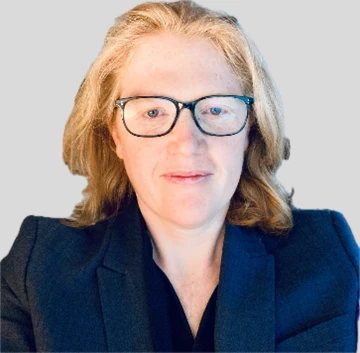 WBG & UNODC
WBG & UNODC
Corruption and climate change are universal problems with global impacts. Both transcend borders and sectors, affecting societies in profound ways. For decades, the sustainability and climate change community has been striving to make our planet more livable. Simultaneously, the anticorruption, integrity, and transparency community has been diligently working to combat corruption. Today, these two communities are converging, identifying shared problems, risks, and solutions. This collaboration is essential to ensure that corruption doesn’t undermine the response to climate change and that those most vulnerable to its consequences are not further impacted by corruption, such as communities meant to benefit from carbon offset projects or climate mitigation funding.
Addressing corruption in climate was a key topic this week at the largest global anticorruption gathering, Confronting Global Threats and Standing Up for Integrity, hosted by Transparency International in Lithuania. The risks associated with climate change are similar to other governance areas: where there are large flows of public funds, corruption risks are heightened. Enhanced oversight in designing and delivering climate mitigation funds is therefore critical.
However, the climate transition also presents unique risks. The emergence of new markets, industries, and policies creates opportunities for regulatory distortions by vested interests. The financial impacts can include increased costs and compromised climate response effectiveness. Addressing these risks quickly is crucial. While building institutions to combat corruption can take decades, climate action is urgent and requires immediate integrity assurance.
Image: Roby Senderowitsch and Alex Habershon at the IACC Conference in Lithuania
Together with UNODC, we issued a discussion draft of a brief on addressing corruption risks in climate responses. This joint note outlines actionable opportunities. Corruption often stems from deeper systemic issues. At the World Bank, we are addressing these underlying issues in everything we do. Beyond financing, we work on improving country systems to tackle foundational problems. Here’s how we are using our three functions to advance the anticorruption agenda:
- Financing: Beyond making sure that the World Bank-financed activities are implemented with the highest levels of integrity, we continue to provide financing for the strengthening of effective, inclusive, and accountable institutions to be able to tackle climate change and combat corruption.
- Knowledge and Capacity: The World Bank has developed diagnostic tools such as the Climate Change Institutional Assessments (CCIA), which evaluate the strengths and weaknesses of public sector institutions in addressing climate change, including a focus on accountability. Additionally, the PEFA Secretariat's Framework for Assessing Climate-Responsive Financial Management strengthens financial oversight. We are also investing more in strengthening accountability by focusing on Supreme Audit Institutions as well as justice institutions around the globe. In fact, next week we will be convening a global forum to foster dialogue and collaboration within a broad ecosystem of stakeholders to reaffirm the role of justice and the rule of law as an essential element of development.
- Convening and Collective Action: Last year, we launched the Anticorruption for Development (AC4D) partnership, which now includes 250 partners dedicated to fighting corruption. We are also exploring opportunities to scale up efforts by initiatives like the Extractives Industries Transparency Initiative (EITI) and accelerating beneficial ownership transparency reforms, crucial for accountability in green procurement and climate finance investments.
The urgency of the climate crisis requires immediate and collective action against corruption. By working together, we can ensure that climate initiatives are not undermined by corruption, safeguarding a sustainable future for all.
Join us in making a difference. Let’s build a transparent, accountable, and sustainable future together.
Editor’s note: Individuals and organizations provided feedback on the first discussion draft (mentioned in the blog) in the context of the COSP10 in December 2023, and who participated in the Expert Round Table in March 2024 hosted by the World Bank and UNODC. This includes representatives from (alphabetically): the Basel Institute; FACT Coalition; Green Climate Fund; CoST; NORAD; Resonance Global; TAI Collaborative; TRAFFIC; Transparency International, UNCAC Coalition, UNDP; Verra; WWF and other individuals from the TNRC Practitioners Forum.




Join the Conversation